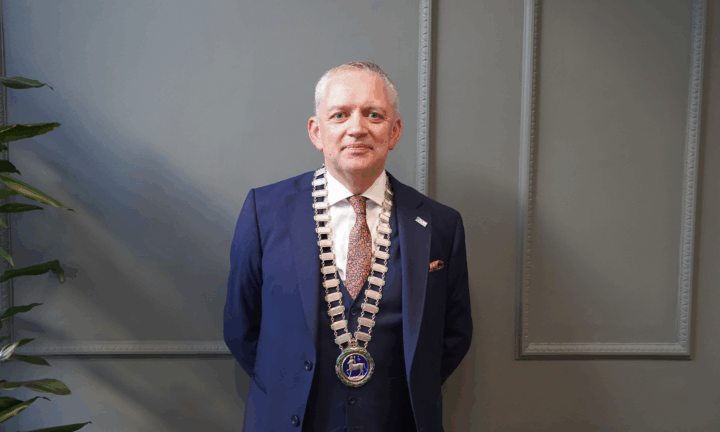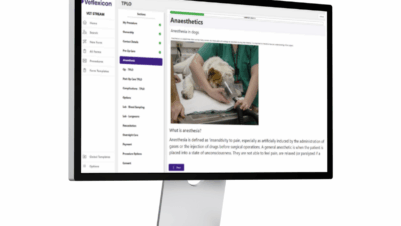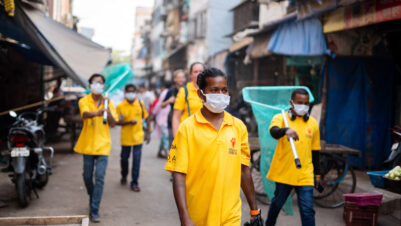
A 2001 graduate of University College Dublin School of Veterinary Medicine with an RCVS Certificate in Small Animal Surgery, Rob is an experienced small animal vet having worked for many years in general and referral practice and as clinical director of a large hospital in York. He is also a qualified HR professional and holds an MBA from York Business School. Since 2016, he has worked with VetPartners in management roles, with a focus on graduate programmes management, colleague engagement and career development.
In a career spanning almost 25 years, Rob has also been actively involved with veterinary and academic organisations in various voluntary roles, including as a member of BVA’s Member Benefits Committee for five years; board member for the Society of Practicing Veterinary Surgeons; member of the RCVS VetGDP sub-committee; and member of the University of York Animal Welfare and Ethical Review Body. He is currently a member of the advisory board at York Business School.
In his first speech as president, Rob introduced his presidential theme: “Shaping the profession of the future”.
Addressing members, he said:
“As we gather here today, we live in interesting times, times that will challenge each of our perspectives and possibly our conception of what it is to be a veterinary surgeon.
“The CMA investigation outcome will change how we interact with and provide clinical care to pets and their owners. It’s also possible the CMA’s remedy decision will have some impact on other parts of the profession, particularly mixed clinical practice. These are unknown challenges but I’m confident we will meet whatever challenge the CMA set us.
“Defra are undertaking… potential reform of the current Veterinary Surgeons Act. This will again create much-needed change in the regulation and governance of the veterinary profession. This change has the potential to be challenging; however, we should not lose sight of the long-term benefits reform of the Act will bring for the profession.
“The UK Government has announced it will negotiate a veterinary agreement with the European Union. This is welcome news, though it comes at a time when there are significant resourcing and operational issues across Government departments and agencies responsible for biosecurity and animal disease resilience, as shown in the recent National Audit Office and EFRA Committee reports.
“Import of novel animal disease is a significant challenge for all parts of the veterinary profession. And these pose some questions. How as a profession do we best advocate for evidence-informed, pragmatic and effective biosecurity? What role do vets in private practice have to play in our national biosecurity and disease outbreak readiness in support of vets working across Government departments and agencies? How can we collectively meet these challenges in the national interest, particularly when the climate is undergoing such rapid change, making novel disease incursion more likely?”
Dr Williams sounded an optimistic note in describing the challenges facing the profession, saying:
“Each of these challenges could be viewed in a negative light; however, I would like us to meet these trials positively – challenges to be embraced, opportunities to be realised, a new and future-focused profession; a 21st century veterinary profession.
“The future is already here; in some veterinary practices, in the spirit, ingenuity and endeavour of many veterinary surgeons working today; we need to capture this future and embrace it.”
You can read Rob’s full speech here.
Outgoing BVA President and specialist wildlife vet Dr Elizabeth Mullineaux will step into the role of BVA senior vice president. In her outgoing speech to members, she highlighted BVA’s lobbying and campaigning work on behalf of members in the past year, which was dominated by responding to the CMA investigation and behind-the-scenes work with the Defra on Veterinary Surgeons Act reform. She also described other key pieces of work BVA has done in driving policy change on animal health and welfare issues, such as launching an updated Animal Welfare Strategy, publishing a policy position on farrowing crates for pigs, and working with vet and MP Danny Chambers on his Puppy Smuggling Bill.
Farm vet and academic Dr Gwenllian Mair Rees BVSc (Hons) PhD AFHEA FRSM FRCVS has been elected to the post of Junior Vice President. BVA’s Welsh Branch President for 2023-2025, Gwen is well known among the Welsh farming and veterinary community as the project lead for Arwain DGC’s Veterinary Prescribing Champions Network, a Welsh Government-funded national antimicrobial stewardship programme, for which she was recognised with an RCVS Fellowship earlier this year. Dr Rees is one of the founding academics at Wales’ first School of Veterinary Science, at Aberystwyth University, where she now works as a lecturer. She is also the Veterinary Development Lead at Welsh independent business development company Mentera, a trustee of the Animal Welfare Foundation, and sits on the Welsh Government’s Bovine Tuberculosis Technical Advisory and AMR in Animal Health Delivery groups. You can read Gwen’s speech in full here.






